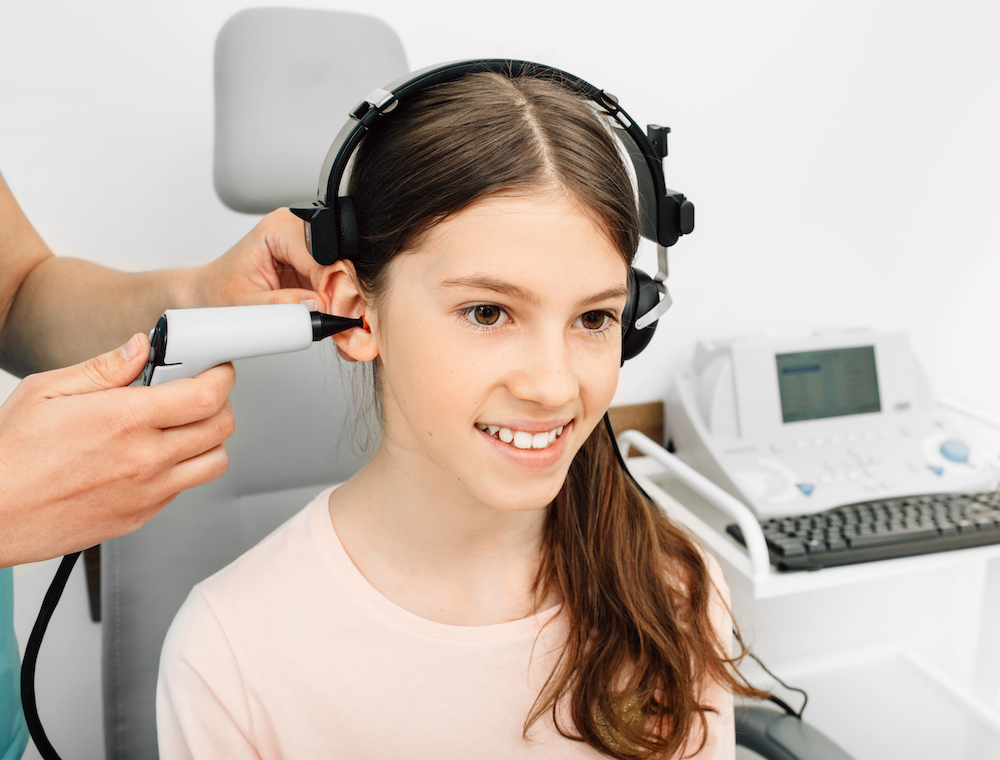What Are Earmolds, and How Do They Work?
If you have noticed that you are experiencing an increased level of

By: admin | April 21, 2022
A 2021 report by the National Institute on Deafness and Other Communication Disorders (NIDCD) revealed that two to three out of every 1,000 children have hearing loss. Although the magnitude of their hearing loss varies, it still needs to be addressed. As parents or guardians, it can be quite tricky to determine if your young ones are dealing with hearing loss or developmental delays. Fortunately, certain signs can give you a fair idea of your child’s hearing condition, including the following.
This is one of the earliest signs that a child possibly has a hearing problem. Sudden loud sounds evoke a swift body response, even with babies. This can be in the form of a body jerk, immediately followed by loud crying.
Although parents do not wish to see their children react out of fear, it is satisfying to observe these responses. On the other hand, when a baby fails to show these signs in the presence of loud sounds, you may need to see the audiologist.
Young children also exhibit the same body reactions after hearing loud sounds. A child who doesn’t may need to be checked out, so keep this in mind. Usually, hearing loss in children may occur after flu, chickenpox, measles and meningitis. If the loss wasn’t brought on by ill health, a possible reason would be a congenital condition. This signifies that the child was born with hearing loss.
Other medical reports suggest that hearing loss may also be inherited from a biological parent. Genetic factors are reportedly responsible for 50% of all congenital hearing loss recorded in the United States.
When a child has an undetected hearing loss problem, they often miss out on several opportunities to develop their speech and other communication skills. In the first year of life, babies are required to hit vital milestones which give an idea of their developmental patterns. The same applies to children aged two to ten years, right through adolescence. The ear is a crucial sensory organ that coordinates with speech. This, therefore, explains the link between hearing loss and speech delays in a child’s life.
So, what is the medical explanation for this? According to studies, the part of the brain responsible for sound and message interpretation fails to develop in a child with hearing loss. The auditory cortex performs basic and higher functions relating to messages received from the inner ear. By interpreting auditory messages, humans hone their hearing and speaking abilities.
A child who experiences speech and communication delays may struggle in school. Academic work may become difficult because they either fail to hear the teacher or understand what is said in class. In the struggle to understand others and their environment, children often develop social and behavioral problems until the underlying issue is attended to.
In 80% of many hearing loss cases, lip reading is a compensating act. This happens because the body gives way to other sensory organs like the eyes. With their vision, a child would rather focus on the lips of the communicator to understand what is said.
Although sometimes, people without hearing loss may resort to lip-reading in specific settings, the problem lies in the excessive use of this compensating technique. Therefore, when you notice your child staring at your lip movements all the time when you speak, it may be time to see the audiologist.
The average American child spends three hours a day behind the television screen. Although this raises an ongoing debate on excessive screen time and its repercussions, the focus here is hearing loss. When kids are constantly turning up the volume on the TV, it could be a sign of declining auditory abilities. Sometimes, it is not a full-blown hearing loss, so keep this in mind. Instead, it may signify the gradual reduction in the child’s ability to perceive sounds at different pitches.
This can be worrying and possibly indicate how much noise you have to tolerate from the television at home. Fortunately, with hearing aids, an audiologist can help improve your child’s quality of life. Indeed, hearing loss can be managed effectively through early detection, so keep this in mind.
If you are unsure about your child’s hearing, you are encouraged to book an appointment with Gavin Audiology and Hearing Aids. Better yet, you can call us today at (914) 610-3440 to learn more.

If you have noticed that you are experiencing an increased level of
By: admin | August 22, 2022

Hearing loss can be caused by a number of things. One of the most common,
By: admin | August 4, 2022

Has your audiologist recently asked you to relax in front of a strange
By: admin | June 14, 2022
